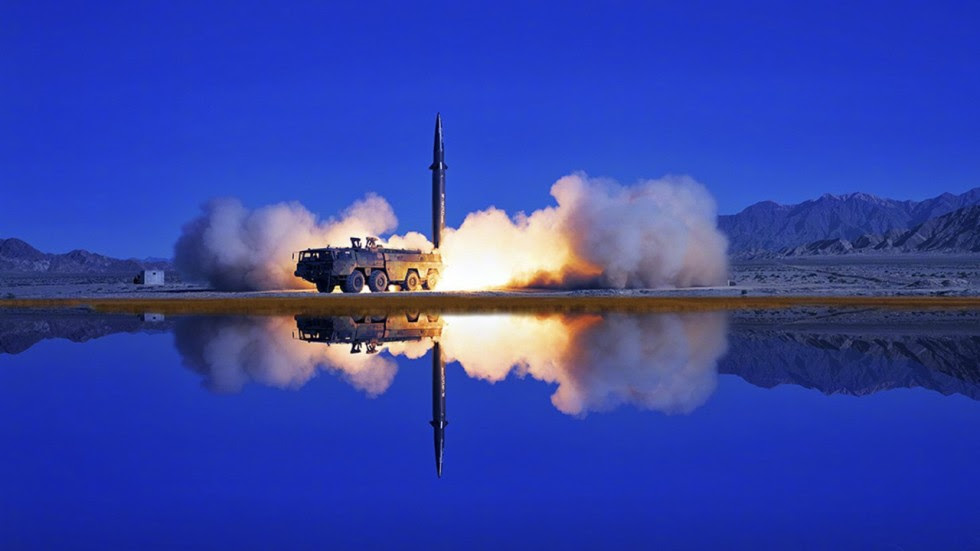
A state-backed physics experiment using a rare metal could help China’s military develop highly radioactive “salted” nuclear bombs that can lay waste to vast areas for months, according to nuclear scientists.
The Chinese Academy of Sciences announced that scientists at a heavy ion research facility in Lanzhou in northwestern Gansu province had fired superheated beams of a radioactive isotope of tantalum, a heavy metal that can be added to a nuclear warhead to increase the release of radioactive fallout. The academy said scientists accelerated the ionised atoms of tantalum 181 to record levels repeatedly as part of an experiment for some military engineering projects.
Du Guanghua, a researcher involved in the tantalum beam project at the academy’s Institute of Modern Physics in Lanzhou, confirmed that the project had military applications but declined to give details. Du said the creation of a high-quality, high-output tantalum beam had long been a challenge because the metal’s unusually high melting point of nearly 3,000 degrees Celsius meant it was difficult to isolate the element and generate a particle stream big enough for experimental use.
Tantalum was also nearly as heavy as gold and highly advanced magnetic technology was needed to propel the ions to high speeds and control their movement, he said.
Han Dejun, a professor of nuclear science and technology at Beijing Normal University, said the experiment was very likely for the development of nuclear devices containing tantalum.
“Salted bombs” take their name from a mediaeval practice of spreading salt on conquered lands as a curse.
On top of causing tremendous damage with a powerful blast, salted bombs use heavy metals such as tantalum to release a cloud of radioactive isotopes and spread them over a much larger area than a conventional nuclear device to render the space uninhabitable.
“The most likely application that I can think of [for the tantalum acceleration experiment] is in nuclear research,” Han said.
“By generating a powerful beam of tantalum ions we can observe how the metal interacts with other elements and change form in high-speed collisions. It simulates what will happen in a real nuclear reaction.” He said tantalum was used rarely in particle acceleration experiments because the heavy element was extremely difficult to handle.
China has stepped up the quantity and quality of its nuclear arsenals in recent years. A major mission of the nation’s nuclear weapon program is to achieve high level of nuclear deterrence with a relatively small number of warheads, a strategy in which salted bombs could play a role. So far no salted bombs have been tested in the atmosphere.
Cai Minghui, an associate researcher at the National Space Science Centre in Beijing, agreed that the Lanzhou project could help China develop new weapons, possibly laserlike devices to do targeted damage. The heavy particles could not penetrate far into solid materials but they could do concentrated harm on the surface, he said.
“In theory, the particle beam of a heavy element such as tantalum can be used as a directed energy weapon,” said Cai, who was also involved in the project. Cai added that the technology could also be used to test China’s sensitive military equipment. If the equipment could withstand the tantalum beam, it had a higher chance of enduring the harsh environment of electronic warfare, he said.
Retired Chinese major general Xu Guangyu, a senior researcher at the Beijing-based China Arms Control and Disarmament Association, said that as nuclear weapons continued to improve, China would make sure it did not fall behind in the technology to maintain strategic deterrence.
“And there shall be wars and rumors of wars For nation shall rise against nation, and kingdom against kingdom.” Matthew 24:6, 7.
Source References
· A beam, a bomb and a burning question: could China be rebooting a nuclear doomsday device?
